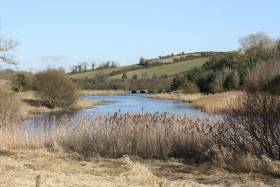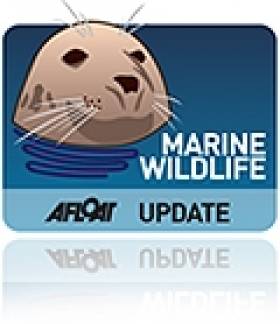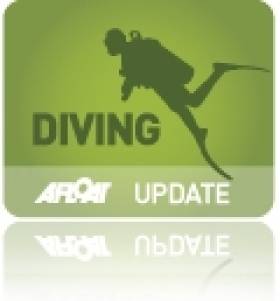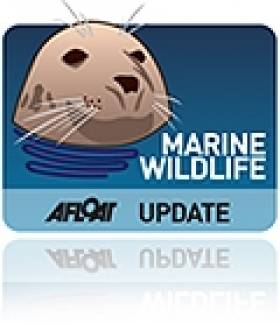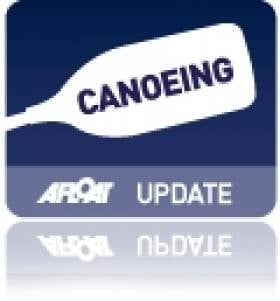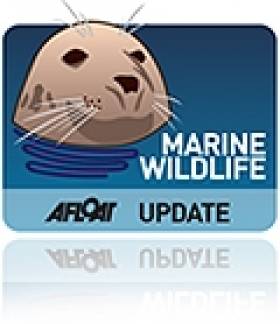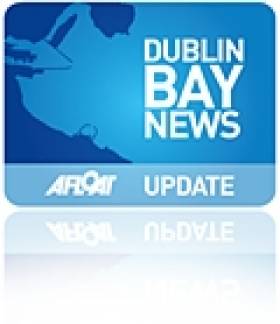Displaying items by tag: Workshops
Workshop for Aquaculture Industry on Sanitary Surveys for Shellfish Harvesting Areas
The Sea-Fisheries Protection Authority (SFPA), Food Safety Authority of Ireland (FSAI) and Marine Institute will host a workshop for industry this week on the requirements relating to sanitary surveys for shellfish harvesting areas and Ireland’s implementation of the relevant legislation.
The workshop will be held in person at FSAI’s head office in Dublin as well as online from 10am to 2pm this Thursday 8 February, and will include speakers from the SFPA, FSAI, Marine Institute, IFA-Aquaculture, CEFAS (UK) and AquaFact.
Keynote speaker will be Michelle Price-Howard from the Centre for Environment, Fisheries, Aquaculture and Science (CEFAS). Price-Howard works with CEFAS as principal scientist for seafood safety and is an environmental microbiologist with 20 years of experience in environmental assessment, water quality and food safety microbiology.
Price-Howard’s work has included environmental risk assessments for sanitary surveys of both aquaculture and wild-harvest shellfisheries for Food Standards Scotland. She has also been involved in providing training at EU and national level on the planning and conducting of sanitary surveys.
In addition, the SFPA will provide presentations on data management and shellfish classification as well as an update on the sanitary survey programme in Ireland.
There will also be an extended session to allow for a discussion on any topic relevant to sanitary surveys that participants may wish to raise. To help better plan the event, participants are asked to send questions or topics in advance if possible to Una Walton at [email protected].
In-person registration is now closed but the workshop can be accessed remotely via Microsoft Teams (Meeting ID: 340 075 071 736; Passcode: g33dRq) or by calling in (audio only) to +353 1 592 3998 with phone conference ID 397 409 122#.
Mysteries of the S.S. Laurentic Revealed in Workshop
#Laurentic - History lovers on Thursday 6 April will get a closer view of some of the fascinating artefacts recovered from the tragic sinking of SS Laurentic in Lough Swilly as part of a unique workshop. The artefacts from the liner are to be held in the Tower Museum, Derry.
The workshop will give participants the chance to view a range of items recovered from the wreck site, some of which will be unveiled to the public for the first time.
Mayor of Derry City and Strabane, Alderman Hilary McClintock, said the workshops offered a unique experience for anyone who is interested in maritime history.
“In recent months following the Centenary of the sinking of the Laurentic we have become more aware of this significant chapter in our local story. There is currently a treasure trove of artefacts on display at the museum, and this is an exciting chance for anyone who wants to explore the story further to learn more about the archive.
“It’s fantastic that so many local people have contributed objects to the exhibition, which will reveal more about those who served on board on that fateful day, as well as the beautiful vessel itself.”
The event is part of the wider programme of activities surrounding the Laurentic exhibition, which is now in its third month at the museum and running until the end of June.
Education Officer with the Tower Museum, Ronan McConnell, said that participants will also have the opportunity to hear some of the unique stories behind the objects and their recovery.
“We are delighted to be unveiling a whole series of new objects not seen before which have been loaned to us recently, including some mystery objects which we are still trying to identify,” he revealed.
“We are very excited about sharing these objects with the public in the hope that they can help us to identify them. The generosity of local divers and history enthusiasts - including relatives of those who sailed on the Laurentic - has been absolutely fantastic and we are looking forward to revealing more about the artefacts during the workshop.
“The strengths of this exhibition lie in two major elements - the story and the artefacts. The sinking of the Laurentic off Lough Swilly, its connection with this city and the search for the gold which still lies at the bottom of the lough, has great resonance among local people and indeed visitors to the city. The exhibition has proven extremely popular since it opened. Some of the artefacts loaned to the museum for the exhibition have incredible stories and this is a great opportunity to relate these stories to participants during the workshop.”
The workshop begins at 10am, admission is free and tea and coffee will be provided. If you would like to attend, please RSVP with [email protected] or phone 028 71 372411
Workshops For Ocean Mapping Software In Galway Next Month
#MarineScience - The Marine Institute will host a three-day workshop on some of the latest technology for ocean mapping next month when the CARIS World Tour stops off in Galway from Tuesday 15 to Thursday 17 November.
Information sessions, detailed demonstrations and hands-on software exercises will be the order of the week in an opportunity for the marine science community to learn about the next generation of CARIS software architecture and its benefits to the hydrographic industry.
Topics will include near real-time sonar data processing, variable resolution surfaces, IHO S-100 and related product specifications, as well as updates on the latest tools and features for efficient hydrographic information processing, management, production and discovery.
The CARIS World Tour will be relevant to surveyors, data processors, cartographers and GIS technicians, as well as managers and decision makers who want to understand the latest technology and trends in ocean mapping.
Participants can register to attend one, two, or all three days of workshops. Visit the CARS website to register and view the agenda HERE.
In related news, London’s School of Economic Science is hosting a marine data management and GIS workshop on Tuesday 22 November.
Under the theme ‘Is poor data management putting your operations at risk?’, the free workshop will examine how GIS technology and OceanWise products and services can deliver efficiencies. Register for this OceanWise event HERE.
#RiverTrusts - Killyleagh Community Centre in Co Down will host a workshop on 'The Role and Formation of River Trusts in Ireland' on Friday 1 July.
The objectives of this workshop are to bring together existing Irish river trusts and those planning on forming trusts to share experience and advice.
It's also intended to invite the various bodies involved with rivers in Ireland to meet with the participants and provide information and guidance on the roles that they see river trusts could play in protecting and enhancing our dense network of rivers and streams.
Full details of the workshop including times and booking information will be confirmed with the full programme at a later date.
New Season of Summer Whale Watching Courses on Cape Clear
#MARINE WILDLIFE - The Irish Whale and Dolphin Group (IWDG) has announced another series of its popular whale watching courses on Cape Clear in West Cork this summer.
The courses cater for adults keen to learn more about whales and dolphins in Irish waters and how to observe, record and identify them. They will feature a mixture of workshops and field trips, including cliff and boat-based whale watches.
Three weekend courses will take place on 25-27 May, 20-22 July and 7-9 September, led by IWDG sightings co-ordinator Pádraig Whooley. All are open to IWDG members and non-members alike, but places are limited to 20 places each weekend on a first-come-first-served basis.
Admission is €70 for IWDG members (€90 for non-members), with a non-refundable deposit of €25 required. Please note that this fee does not cover transport to Cape Clear, food or accomodation (which is limited in high summer) or any boat trips. As the itinerary will be weather-dependant, some flexibility will be required.
More information on the weekends and booking details are available at the IWDG website HERE.
In other IWDG news, the group has secured another grant from the Island Foundation to continue its humpback whale research in Cape Verde this spring and summer.
A shore-based team will be stationed in Boa Vista in an area that is "possibly the most important site for breeding humbacks in the entire northeast Atlantic".
Dive Ireland Expo Returns
#DIVING - Dive Ireland 2012, Ireland's only dedicated dive expo, promises to be bigger, better and feature more speakers, exhibits and workshops - everything for the dive professional as well as the complete beginner.
The 21st Annual International Dive Show, hosted by the Irish Underwater Council (CFT), will take place at the City North Hotel in Dublin on the weekend of 3-4 March.
This year's show will feature top SCUBA professionals including keynote speaker Rory Golden, who in 2000 became the first Irish diver to visit the wreck site of the Titanic, returning for a second visit in 2005.
Golden will be giving a series of talks on his experiences to mark the centenary of the ill-fated ship's sinking in the north Atlantic.
Dive Ireland 2012 will also feature a huge array of Irish SCUBA companies, free seminars and practical workshops that will cater to a wide range of diver interests, along with a host of in-show features guaranteeing a great day out for divers and non-divers alike.
Visit the Dive Ireland 2012 website for more details on tickets or booking a stand.
IWDG to Host European Cetacean Conference in Galway This March
#MARINE WILDLIFE - The Irish Whale and Dolphin Group (IWDG) will host the 26th annual European Cetacean Society Conference in Galway on the weekend of 24-25 March this year.
The Galway Bay Hotel will be the site for the main conference sessions, while workshops will also be held at the Galway-Mayo Institute of Technology (GMIT).
This year's gathering is being held under the theme 'Communication: Information and Ideas Worth Sharing'. Participants will be exploring communication between marine mammals as well as between marine scientists, and between scientists and the public.
As Ireland's Wildlife reports, the conference "offers a offers a great opportunity to find out more about whales and dolphins, their conservation, the cetacean research being carried out in Europe and to meet the researchers who are working to uncover the mysteries of these most enigmatic of creatures."
Registration is now open for the two-day event. For full details of the conference programme, venues and booking information, visit the European Cetacean Society Conference micro site HERE.
Sea Kayaking Symposium in Mayo this October
The Irish Sea Kayaking Association (ISKA) will host its annual symposium on 8-9 October 2011 in Mulranny, Co Mayo.
The activity-filled weekend at the Mulranny Park Hotel will include training workshops, peer paddles and talks by leading kayaking experts.
Delivering the keynote speech will be Jasper Winn, author of Paddle: A Long Way Around Ireland, who will use a mix of digital slides, video clips and live music to illustrate his account of his trip around the country by kayak.
For more details visit the ISKA website at irishseakayakingassociation.org.
Summer Whale Watching Courses on Cape Clear
The Irish Whale and Dolphin Group (IWDG) is running a new series of its popular whale watching courses on Cape Clear in Co Cork this summer.
The first weekend course from 8-10 July 2011 caters for adults keen to learn more about whales and dolphins in Irish waters and how to observe, record and identify them. It will feature a mixture of workshops and field trips, including cliff and boat-based whale watches.
Admission for this course is €70 for IWDG members (€90 for non-members). Please note that this fee does not cover transport to Cape Clear, food or accomodation, or any boat trips. As the itinerary will be weather-dependant, some flexibility will be required.
Places are also limited to 20 per course on a first-come-first-served basis. Booking requires a non-refundable deposits of €25 to be paid by cheque or postal order to the IWDG.
For bookings and enquiries contact IWDG sighting co-ordinator Pádraig Whooley at [email protected] or 023 883 8761.
Green Party Speaks Out for Small Boat Owners in Dun Laoghaire
Ciaran Cuffe TD of the Green Party has spoken out in support of small boat owners in a submission to the Dún Laoghaire Harbour Masterplan. Cuffe, a candidate in the General Election, says the prioritisation of space within the harbour for surface car parking and marshalling yards for ferry services has reduced the space available for small boat owners. Cuffe says the masterplan should specifically enhance facilities and storage space for small boat owners, such as the Coal Harbour Users Group (CHUG) and local yacht and water sports clubs. He also says consideration should be given to the development of workshops to promote traditional boat building and small craftrepair and restoration.
The full submission from Ciaran Cuffe is below:
"I welcome the preparation by the Dún Laoghaire Harbour of a masterplan for the harbour area. Dún Laoghaire harbour is a major recreational and amenity resource for the locality andwider Dún Laoghaire area and a long-term strategic vision underpinned by a plan-ledimplementation framework is vital in order to secure the harbour's future for the benefit of both the Harbour Company and the local community.
Maintaining a ferry link to the UK
I welcome the proposal to redefine Dún Laoghaire Harbour as a leisure harbour. However, Ibelieve that future opportunities to keep a ferry link with the UK should not be lost. As we have seen during recent incidents when airplanes were grounded, travelling by ferry is still aviable means of travel and may become increasingly so in the future. A seasonally ferryduring the summer months could be considered and the infrastructure needed for a ferryservice should be maintained. The Harbour Company should work to secure INTERREG funding to provide better linked-in ferry and train services between Ireland and the UK.
Cruise Ships & Tourist Development
There is considerable scope to attract the cruise liner market to Dún Laoghaire. Dún Laoghaire is a fantastic harbour location with a unique built and natural heritage. Its location immediately adjacent to the Dún Laoghaire DART station makes it an ideal gateway locationfor tourists to explore Dublin City and hinterland. We have seen the positive impact of large cruise liners docking at Dublin Port with thousands of visitors disembarking, visiting Dublin's tourist attractions and spending money in local businesses. Dún Laoghaire Harbours offers a much more pleasant and suitable docking location for cruiseships and there is a major opportunity to exploit this economic potential for the benefit of the wider locality. Any physical works required to facilitate the mooring of large cruise liners in Dún Laoghaire should be carefully designed so as to avoid any adverse impact on local builtand natural heritage, including the Dublin Bay Special Area of Conservation.
Built Heritage
The unique physical fabric and built heritage Dún Laoghaire Harbour is an important assetand must be conserved and enhanced. In particular, the historic Carlisle Pier now has thepotential to provide a high quality outdoor public amenity space. I understand that elements of the 1890's Victorian railway building have been retained and I believe that these elements should be reconstituted as part of multi-functional covered space to, for example, host an ice-rink in winter, the Festival of World Cultures in summer and occasional outdoor events andmarkets.
Open Space & Public Accessibility
In recent years significant areas of the Harbour Company land was converted to revenuegenerating surface car parking. This has created a car dominated environment and adisconnect between the harbour area and Dún Laoghaire town. The long-term future of theharbour is much better served by opening up the harbour area to pedestrians and cyclists, enhancing accessibility for the general public, improve directional signage, reducing surfacecar parking and delivering more green spaces. In order to achieve this, the Masterplan shouldinclude a detailed design framework for the public realm including further measures to removethe barriers to accessibility due to the rail line.
Views
The sensitive built, natural and visual environment of the harbour requires a very carefulapproach to any future infill development. Particularly, infill development should be in keepingwith the existing building heights of the town to protect the harbour setting and views fromDún Laoghaire to Dublin Bay and Howth Head and sensitively designed to conserve thecharacter of local built heritage and the numerous important protected structures.
Small Boat Owners
The prioritisation of space within the harbour for surface car parking and marshalling yards for ferry services has reduced the space available for small boat owners. The masterplan should specifically enhance facilities and storage space for small boat owners, such as the CoalHarbour Users Group (CHUG) and local yacht and water sports clubs. Consideration should be given to the development of workshops to promote traditional boat building and small craftrepair and restoration.
Conclusion
Dún Laoghaire is extremely fortunate to have a unique historic harbour resource, which is a central part of the local identity and a much loved and valued social, recreational, and amenity resource. However, the future economic viability of the harbour is dependent on creating appropriate synergies with the wider economy of Dún Laoghaire. The imaginative redevelopment of the harbour can contribute significantly to the local economy, particularly inthe development of heritage and tourism initiatives, The Masterplan must focus on how the future development of the harbour can contribute to cultivating these synergies in a manner, which is economically, socially and environmentally sustainable."



























